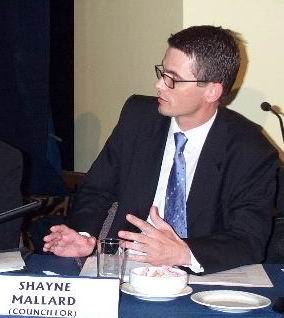 Offering a blog has with it responsibilities and risks. Because of the abuse of this site by some activists who have been 'flaming*' my blog, I need to outline a few policies that the editorial committee for eCouncillor have established.
Offering a blog has with it responsibilities and risks. Because of the abuse of this site by some activists who have been 'flaming*' my blog, I need to outline a few policies that the editorial committee for eCouncillor have established.- comments are now moderated through 'Haloscan'
- constructive comments focused on policy interests and blog comments are welcome and encouraged and posted as soon as possible
- abuse will always be removed
- all comment will need to be registered - no hiding behind anonymous comments
- when flaming is detected eCouncillor comments will be suspended and moderated ASAP
- requests by third parties to remove a comment will be respected
- eCouncillor can not take responsibility for comments posted and will remove as soon as possible offensive material posted by third parties
- editorial decisions are final and no correspondence will be entered into
To those who are genuine in being engaged - I thank you and keep the comments coming as they are important feedback. Whilst eCouncillor is an innovative communication tool - it should be noted that my political opponent Clover Moore offers no ability for response or comment in her publicly funded (no public funds are used in producing eCouncillor) dull email newsletter and monotonous web site.
thank you for your support.
Shayne
* Flaming is the act of posting messages that are deliberately hostile and insulting, usually in the social context of a discussion board (usually on the Internet). Such messages are called flames, and are sometimes posted in response to flamebait. Flaming is one of a class of economic problems known as The Tragedy of the Commons, when a group holds a resource (in this case, communal attention), but each of the individual members has an incentive to overuse it.
Although the trading of insults is as old as time itself, flaming on the Internet, like many other online 'actions', started in the Usenet hierarchies. A flame may have elements of a normal message, but is distinguished by its intent. A flame is typically not intended to be constructive, to further clarify a discussion, or to persuade other people. The motive for flaming is often not dialectic, but rather social or psychological. Sometimes, flamers are attempting to assert their authority, or establish a position of superiority. Occasionally, flamers wish to upset and offend other members of the forum, in which case they are trolls. Most often however, flames are angry or insulting messages transmitted by people who have strong feelings about a subject.
